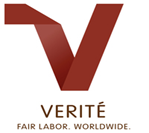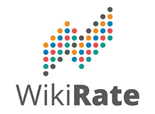...
...
Name of Resource | Agents for change. How public procurers can influence labour conditions in global supply chains. Case studies from Brazil, Pakistan and Thailand |
Type | Report/analysis |
Country / jurisdiction | Global |
Organization | SwedWatch |
Date of publishing | 15 November 2016 |
Description | The report focuses on the social aspects of supply chains and examines how contracting authorities in the EU can use social criteria to improve labour conditions in countries where poor labour standards are rife. The report draws on experiences and lessons learned from the Swedish public market in the hope that they may prove useful to policy-makers and contracting authorities in other countries. The report also aims to provide Sweden’s own purchasing authorities with an overview of risks and opportunities. Case studies presented review labour conditions in: 1) Pakistani factories that produce surgical instruments; 2) Thai poultry factories; and 3) Brazilian coffee farms, and illustrate how Swedish contracting authorities have used social criteria (or not). |
Availability | ENG: http://www.swedwatch.org/wp-content/uploads/2016/11/82_Agents-for-Change-enkelsidor.pdf |
Name of Resource | An Ethical Framework for Cross-Border Labor Recruitment: An Industry/Stakeholder Collaboration to Reduce the Risks of Forced Labor and Human Trafficking |
Type | Report / analysis |
Country / jurisdiction | Global |
Organization | Verité, Manpower Group |
Date of publishing | 2012 |
Description | The Ethical Framework for Cross Border Labor Recruitment offers a set of specific operational practices (“Standards of Ethical Practice”) for recruitment firms that operate across borders. These practices are reinforced by a Verification and Certification system to document compliance and provide essential information to third parties and potential business partners. The framework, including the verification process, is designed as a remedy to the current institutional fragmentation of the cross-border recruitment marketplace, where employers, recruiters, and their local and regional subcontractors may operate in different jurisdictions with limited accountability to one another, to regulators, or to workers. The framework creates a set of credentials and information for third parties that will help eliminate unscrupulous brokers. |
Availability | ENG: https://www.verite.org/wp-content/uploads/2016/12/ethical_framework_paper.pdf |
...
Name of Resource | UN Guiding Principles Reporting Framework with implementation guidance |
Type | Guidance on policy / legislation implementation |
Country / jurisdiction | Global |
Organization | Human Rights Reporting and Assurance Framework Initiative, co-facilitated by Shift and Mazars |
Date of publishing | February 2015 |
Description | The UN Guiding Principles Reporting Framework is a comprehensive guidance for companies to report on human rights issues in line with their responsibility to respect human rights. This responsibility is set out in the UN Guiding Principles on Business and Human Rights, which constitutes the authoritative global standard in this field. The Reporting Framework provides a concise set of questions to which any company should strive to have answers to in order to know and show that it is meeting its responsibility to respect human rights in practice. It offers companies clear and straightforward guidance on how to answer these questions with relevant and meaningful information about their human rights policies, processes and performance. S ee also: Reporting Insights: https://www.ungpreporting.org/database-analysis/reporting-trends-and-insights/ Maturity Indicators & Methodology: https://www.ungpreporting.org/database-analysis/methodology/ |
Availability | ENG: https://www.ungpreporting.org/wp-content/uploads/UNGPReportingFramework_withguidance2017.pdf |
Name of Resource | United Kingdom Modern Slavery Act Research |
Type | Report/analysis, knowledge hub |
Country / jurisdiction | United Kingdom |
Organization | WikiRate |
Date of publishing | 2015 |
Description | The purpose of the initiative is to spur corporations to be transparent and responsive by making data on their social and environmental impacts useful and available to all. The platform is a place for everyone to bring together information on corporate practices on their response to the United Kingdom Modern Slavery Act, evaluate it, and determine what gaps need to be filled. |
Availability | ENG: http://wikirate.org/United Kingdom_Modern_Slavery_Act_Research# |
Name of Resource | Worker-driven Social Responsibility Network |
Type | Report/analysis, knowledge hub, platform for co-operation |
Country / jurisdiction | Global |
Organization | Worker-driven Social Responsibility Network |
Date of publishing | 2015 |
Description | The Worker-driven Social Responsibility Network was founded by seven organizations: Business & Human Rights Resource Centre; Coalition of Immokalee Workers; Fair Food Standards Council; Migrant Justice; National Economic and Social Rights Initiative; T’ruah: The Rabbinic Call for Human Rights; Worker Rights Consortium. The Network seeks to build understanding of the Worker-driven Social Responsibility model among a wide range of relevant actors, provide support and coordination for worker-led efforts to replicate the model in new industries, and create a paradigm shift within the field to establish Worker-driven Social Responsibility as the baseline model for any workers’ rights program within a global supply chain. |
Availability |



